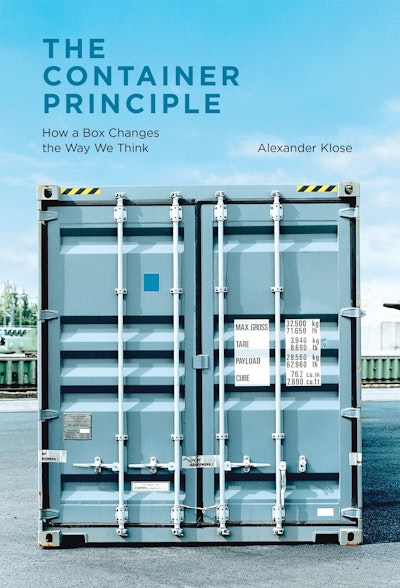- Published: 18 March 2025
- ISBN: 9780262051194
- Imprint: MIT Press Academic
- Format: Paperback
- Pages: 416
- RRP: $70.00
The Container Principle
How a Box Changes the Way We Think
- Published: 18 March 2025
- ISBN: 9780262051194
- Imprint: MIT Press Academic
- Format: Paperback
- Pages: 416
- RRP: $70.00
"Globalization has created a landscape of shipping containers. Against the methodological background of media theory, Alexander Klose's kaleidoscopic essay traces the containerization of the world. This book explains why the container became an icon of global trade and a powerful object of imaginations."
—Monika Dommann, University of Zürich
"Klose captures the rise of the infrastructural as a key dynamic in our global world. He explodes the conceptual boundaries of the term, and therewith makes that familiar term unrecognizable, an exciting window into material realities of today's world."
—Saskia Sassen, author of Expulsions: Brutality and Complexity in the Global Economy
"The Container Principle captures the fear and imagination inspired by our logistics-driven world. Klose describes the paradoxes of the container: how it collapses time and space and how it has become the most dynamic, networked object on both land and sea."
—Julia Christensen, Assistant Professor of Integrated Media Art, Oberlin College; author of Big Box Reuse
